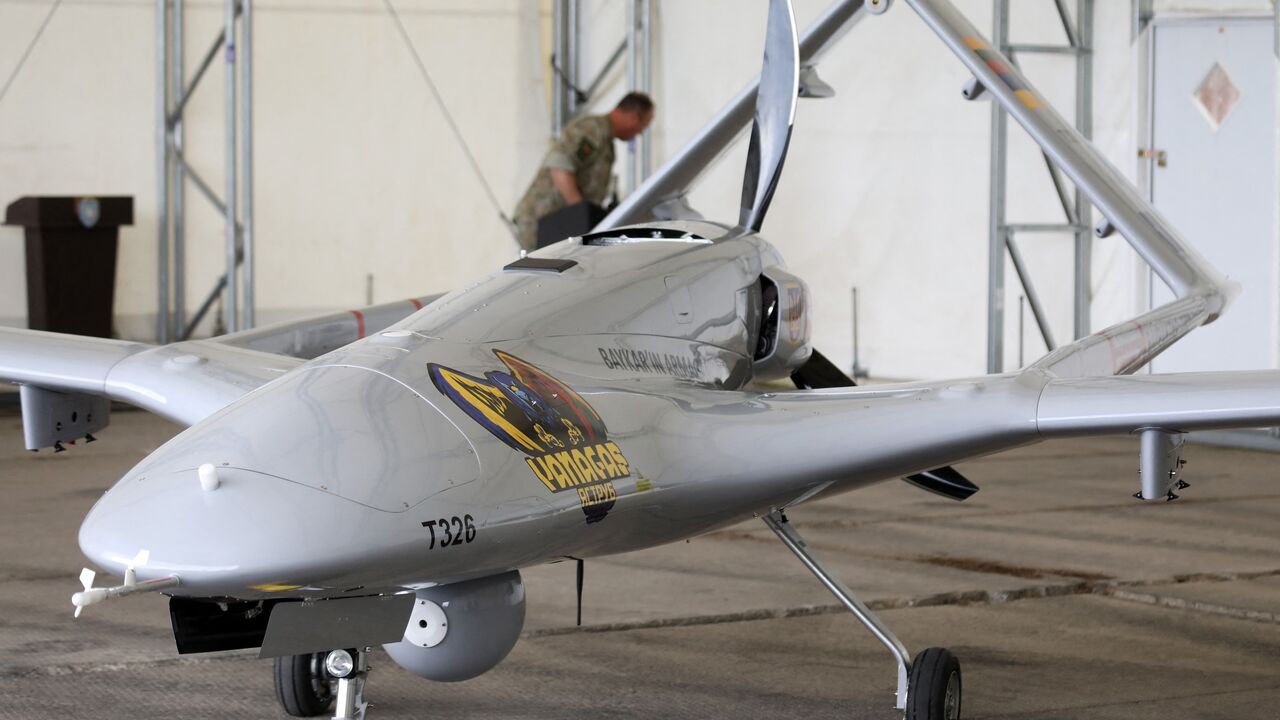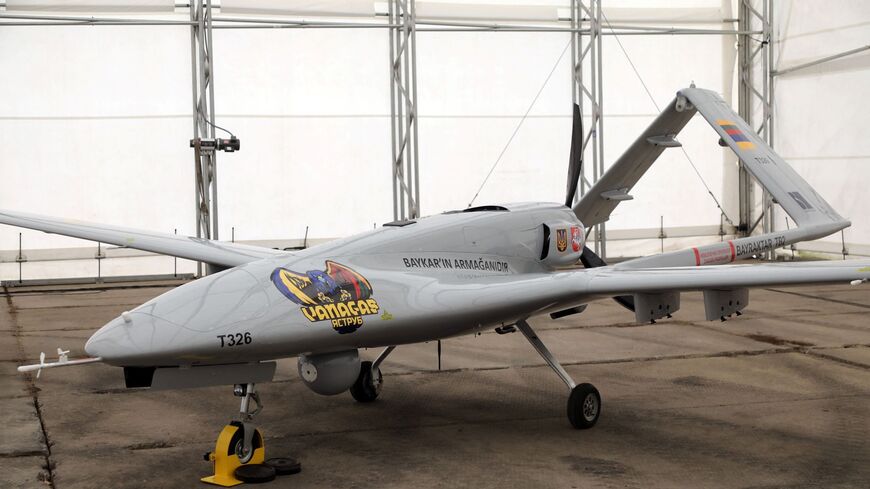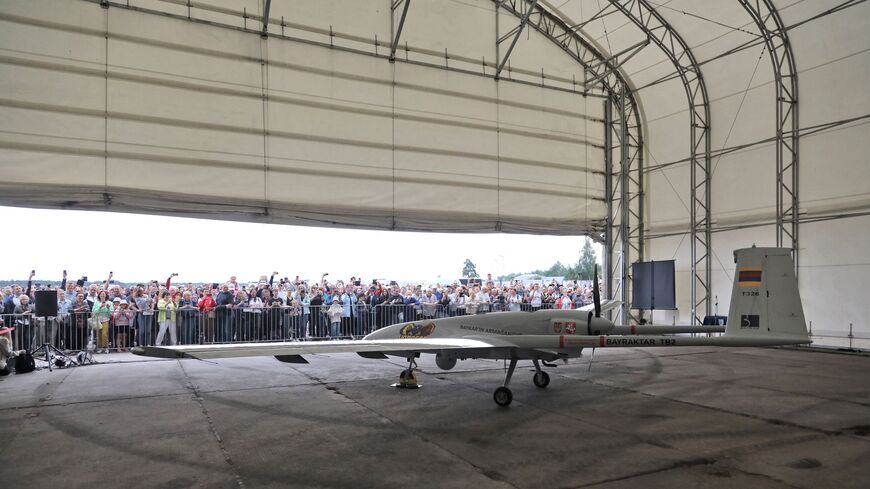Turkey's fastest drone plays key role locating Iran helicopter crash site
The location of the helicopter crash site was identified by Turkey’s Akinci drone, according to Turkish officials, after Ankara sent teams to help Iran's search mission.

ANKARA — Turkey will observe one-day of national mourning after the helicopter crash Sunday that killed Iranian President Ebrahim Raisi along with seven others, including the country’s foreign minister, Hossein Amirabdollahian.
Speaking after a cabinet meeting in Ankara on Monday, Turkish President Recep Tayyip Erdogan said the day of collective mourning aims to “share the deep pain experienced by the Iranian people.” Erdogan added that he had conveyed his condolences to Iran’s acting president, Mohammad Mokhber, during a phone call earlier in the day.
“We contacted the Iranian authorities and mobilized all our resources to contribute to the search and rescue efforts after the crash,” Erdogan said, adding, “We will continue to act in the same spirit.”
On Sunday, Turkey dispatched a Bayraktar Akinci drone along with a Cougar helicopter and dozens of emergency personnel to support the search efforts after the helicopter crashed in the Dizmar forest in East Azerbaijan province.
Turkish Transportation Minister Abdulkadir Uraloglu said earlier Monday that the location of the crash site was established “through the detections” made by the Akinci.
Erdogan also praised the drone’s role in the efforts. “Akinci carried out a search in the region for 7.5 hours, flying a total of 2,100 kilometers,” he said. “It returned to our country after successfully completing its mission.”
The crash “revealed the importance of” the high-altitude UAV, Erdogan added.
Akinci’s movements over Iranian skies in the aftermath of the crash had been tracked by more than 200,000 people, Turkey’s state-run Anadolu News Agency reported, citing the FlightRadar24 application.
Turkey's fastest drone
The drone was dispatched after the Iranian government asked for a search helicopter with night-vision capabilities, according to official Turkish statements.
Tolga Ozbek, a defense and aviation analyst, said Ankara offered the Akinci drone due to its high-speed capacity and because adverse weather conditions at the time of the search weren't allowing helicopters to fly.
“It is the fastest drone which is currently in service in Turkey,” he told Al-Monitor. “It was sent because there was a race against time.”
The high-altitude, long-endurance (HALE) combat drone can reach 40,000 feet and a speed of 195 knots.
The crash site was identified by the thermal camera Akinci was carrying, and the coordinates were then shared with Iranian authorities, Ozbek added.
Akinci’s involvement in the search also highlighted the limitations of Iranian drone capabilities, according to Ozbek. “Iran, in fact, manufactures a large number of drones, but we understand that they don’t have a drone that can perform this type of search and rescue mission,” he said.
The Akinci drone, which has been operational since 2021, when it was added to the Turkish armed forces' inventory, is produced by Baykar, which also manufactures the internationally famed Bayraktar TB2 armed drones.
Selcuk Bayraktar, who co-runs Baykar along with his brother, Haluk Bayraktar, described Sunday's search as a “high-risk” mission, when speaking to Turkey’s CNN Turk television on Monday.
The Turkish armed forces flew the drone at altitudes “as low as 100 meters” (roughly 328 feet) over the mountainous terrain despite adverse weather conditions, including dense fog, rain and wind, Bayraktar, who is also Erdogan’s younger son-in-law, said.
Baykar, which has played a pioneering role in Turkey’s growing drone production and defense sector, now exports its products to more than 30 countries. The international success of Bayraktar drones over the past decade has helped elevate Turkey's defense sector more broadly, with Turkey’s overall defense exports reaching $5.5 billion last year, a 27% increase from 2022.









